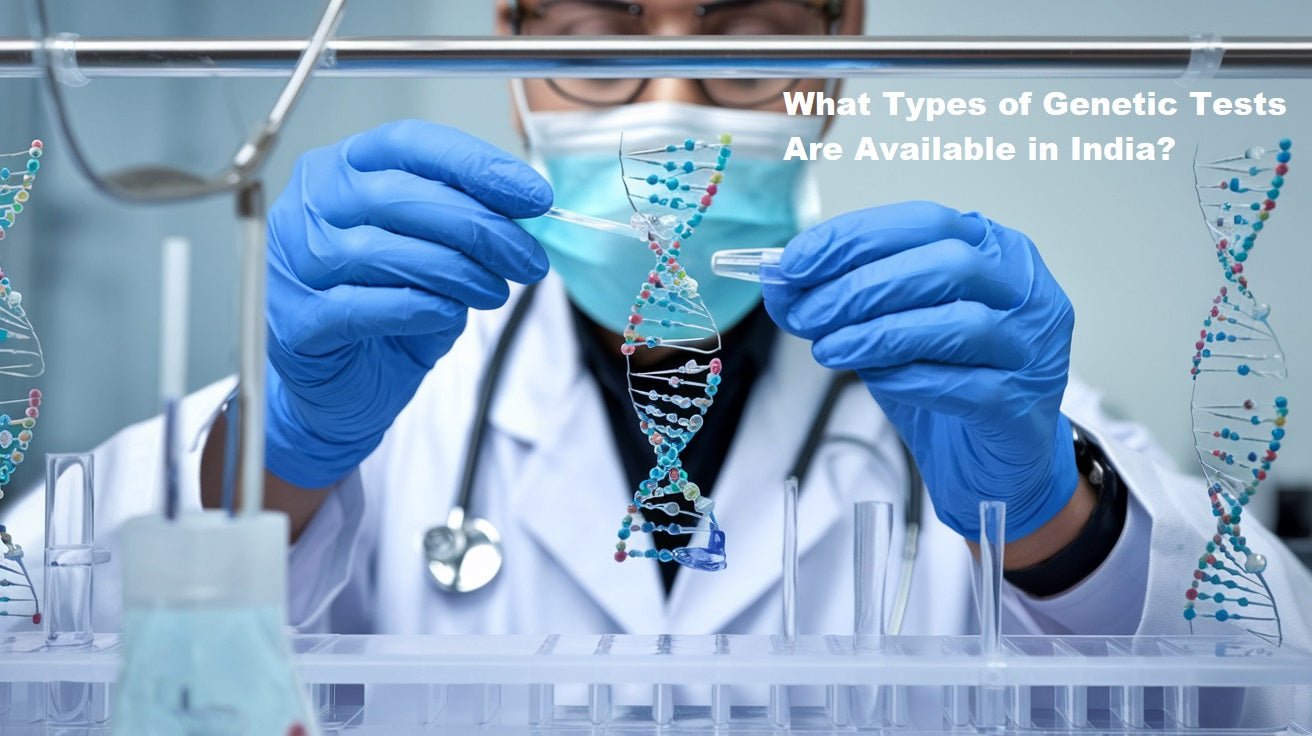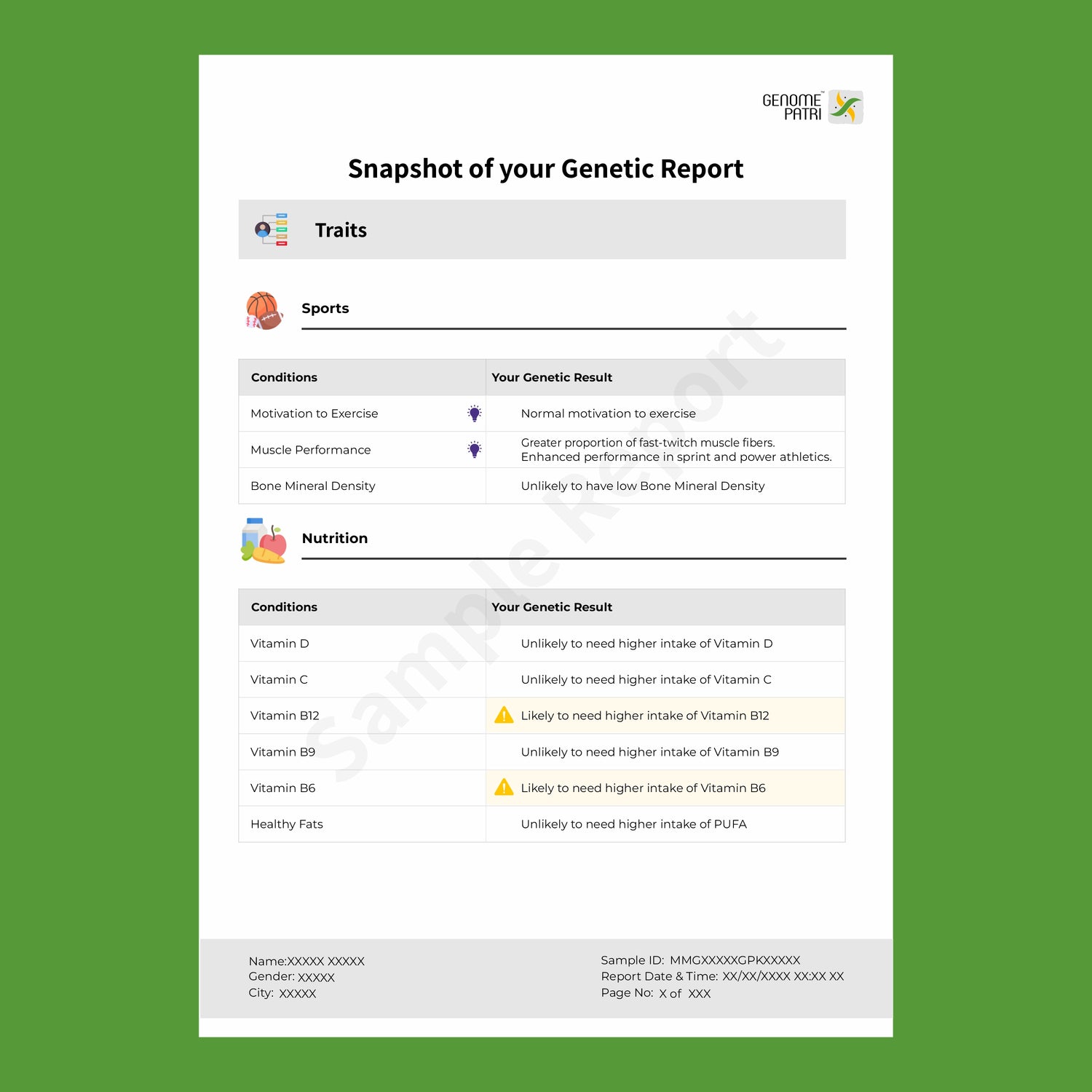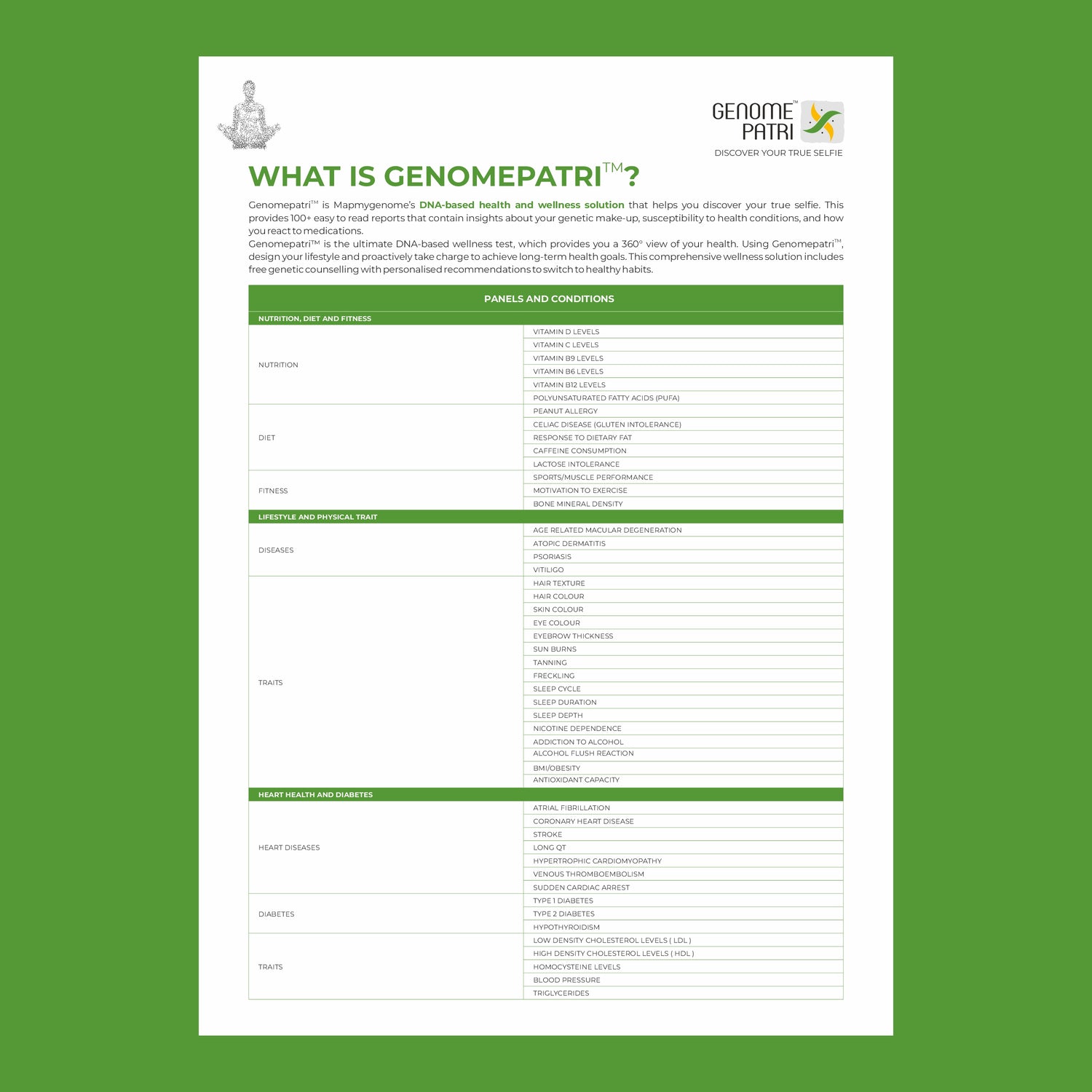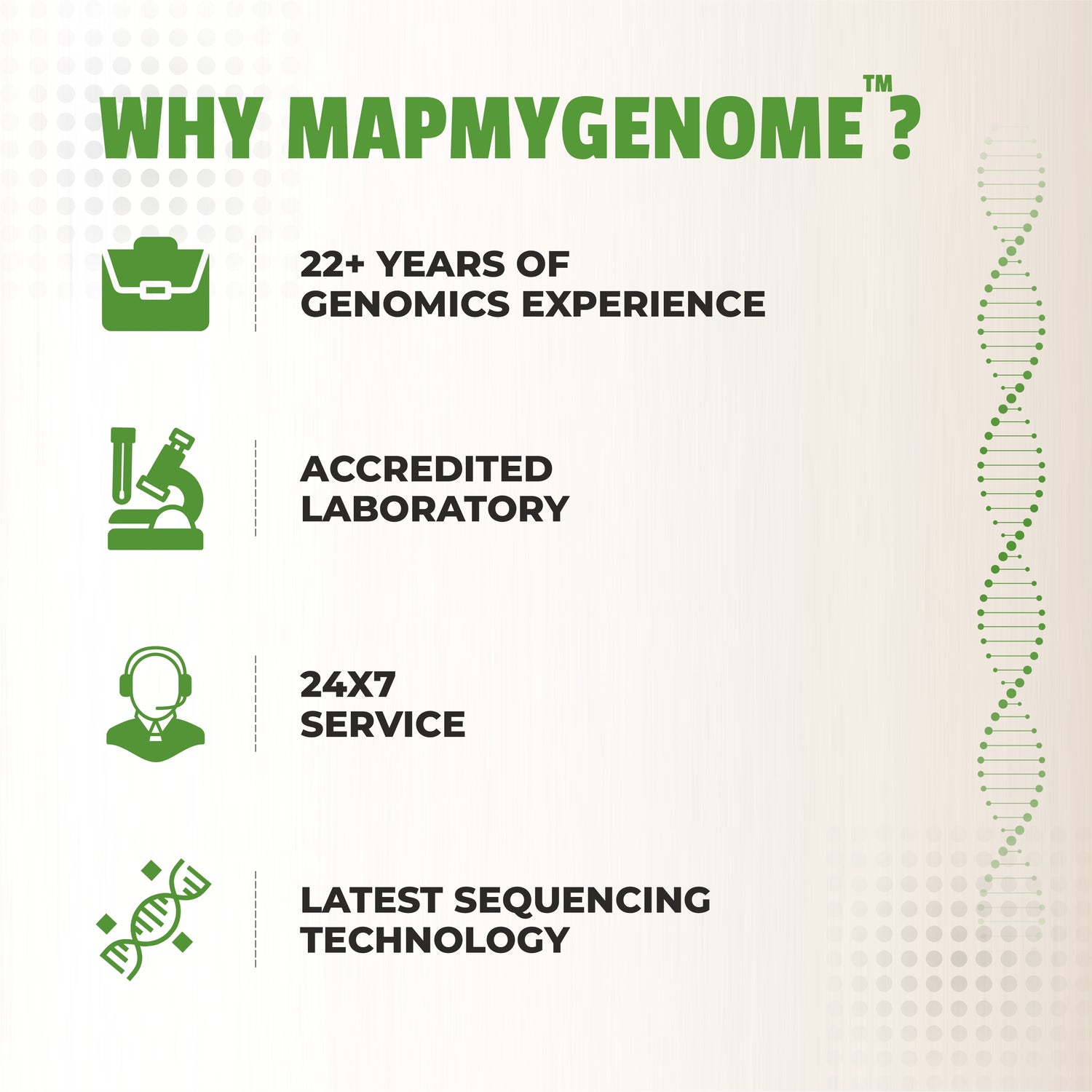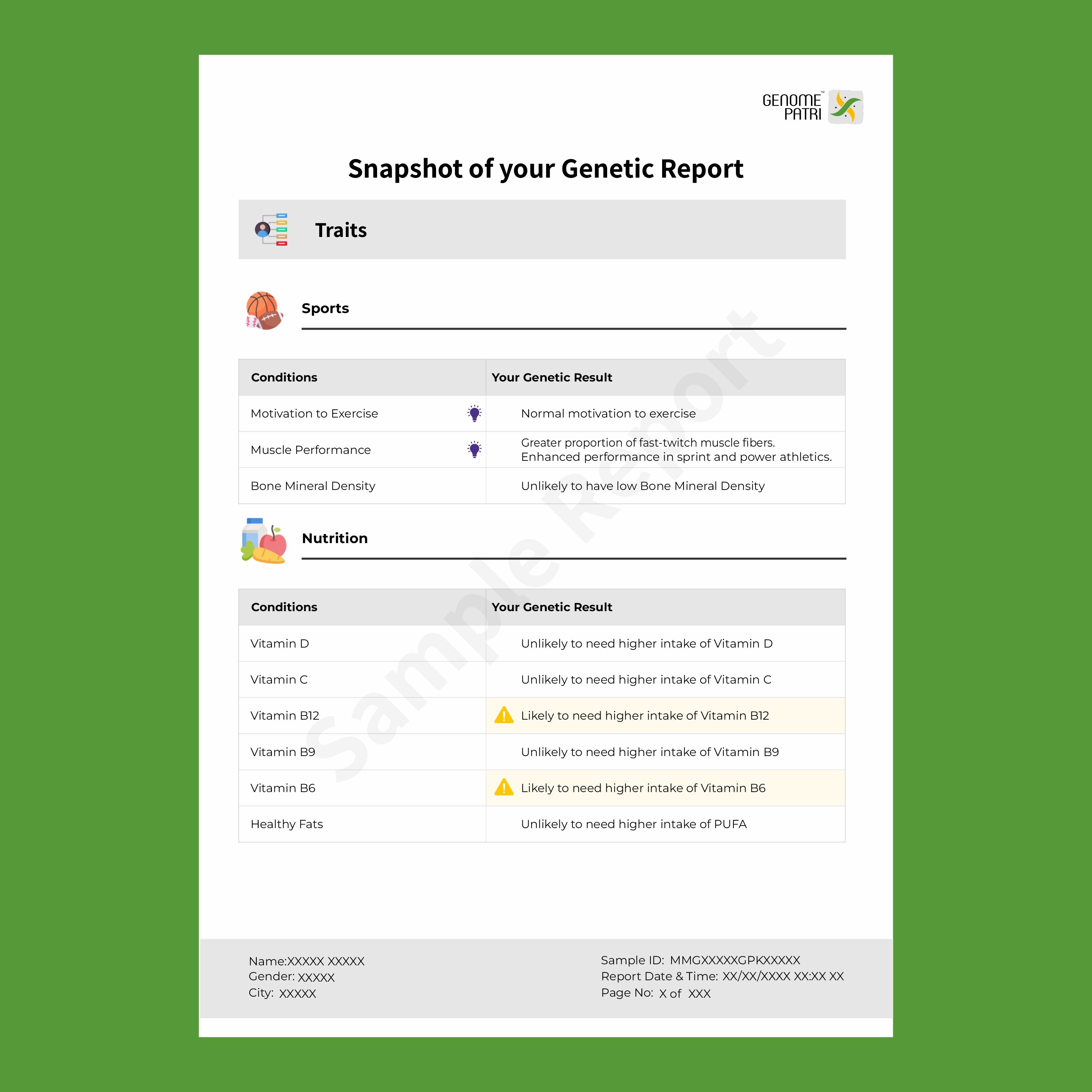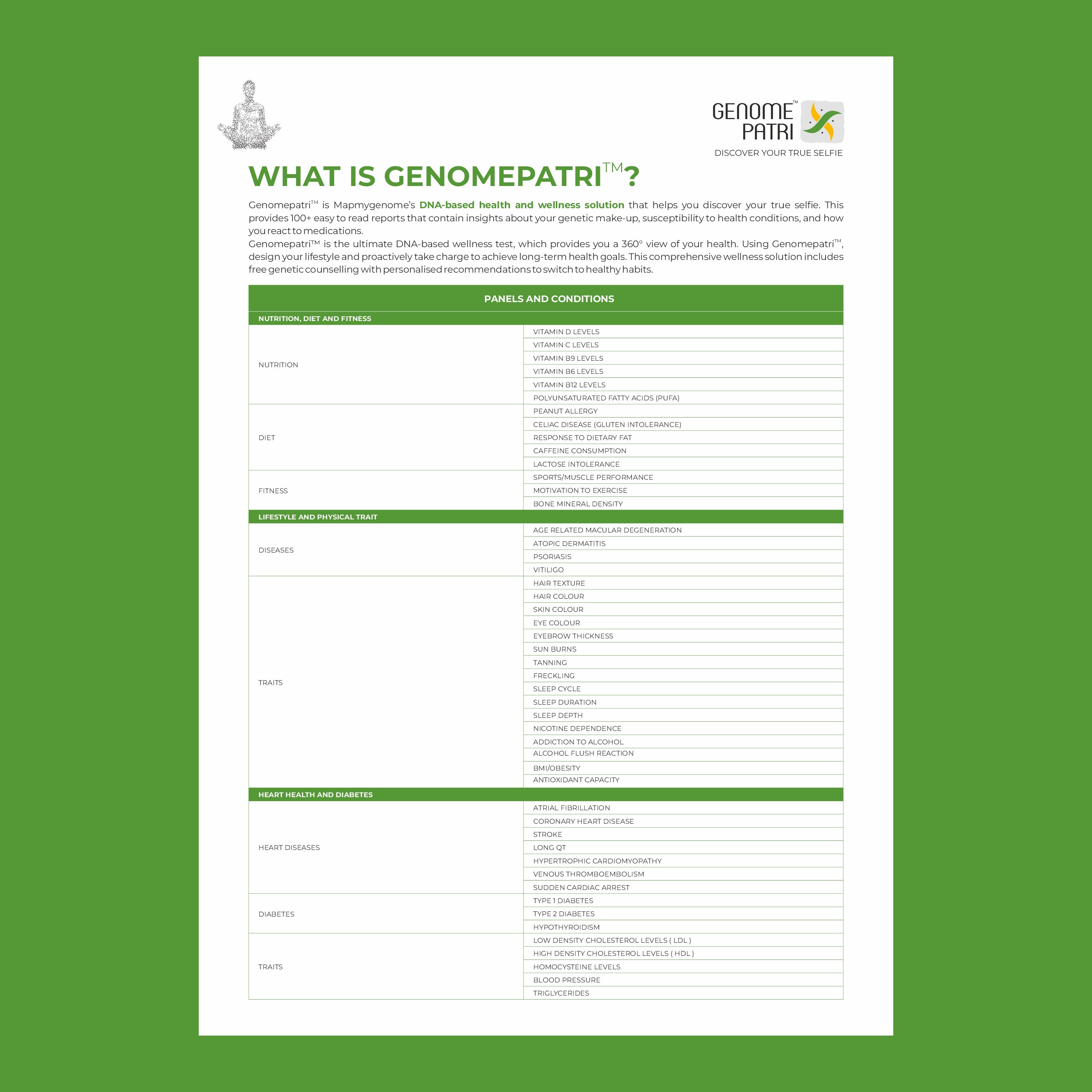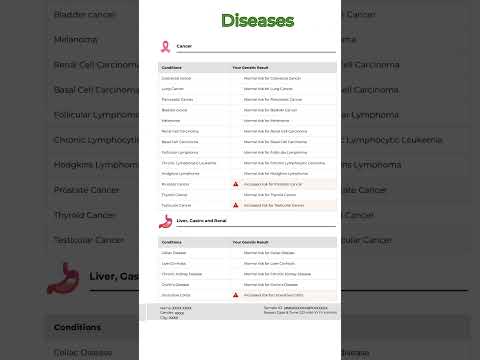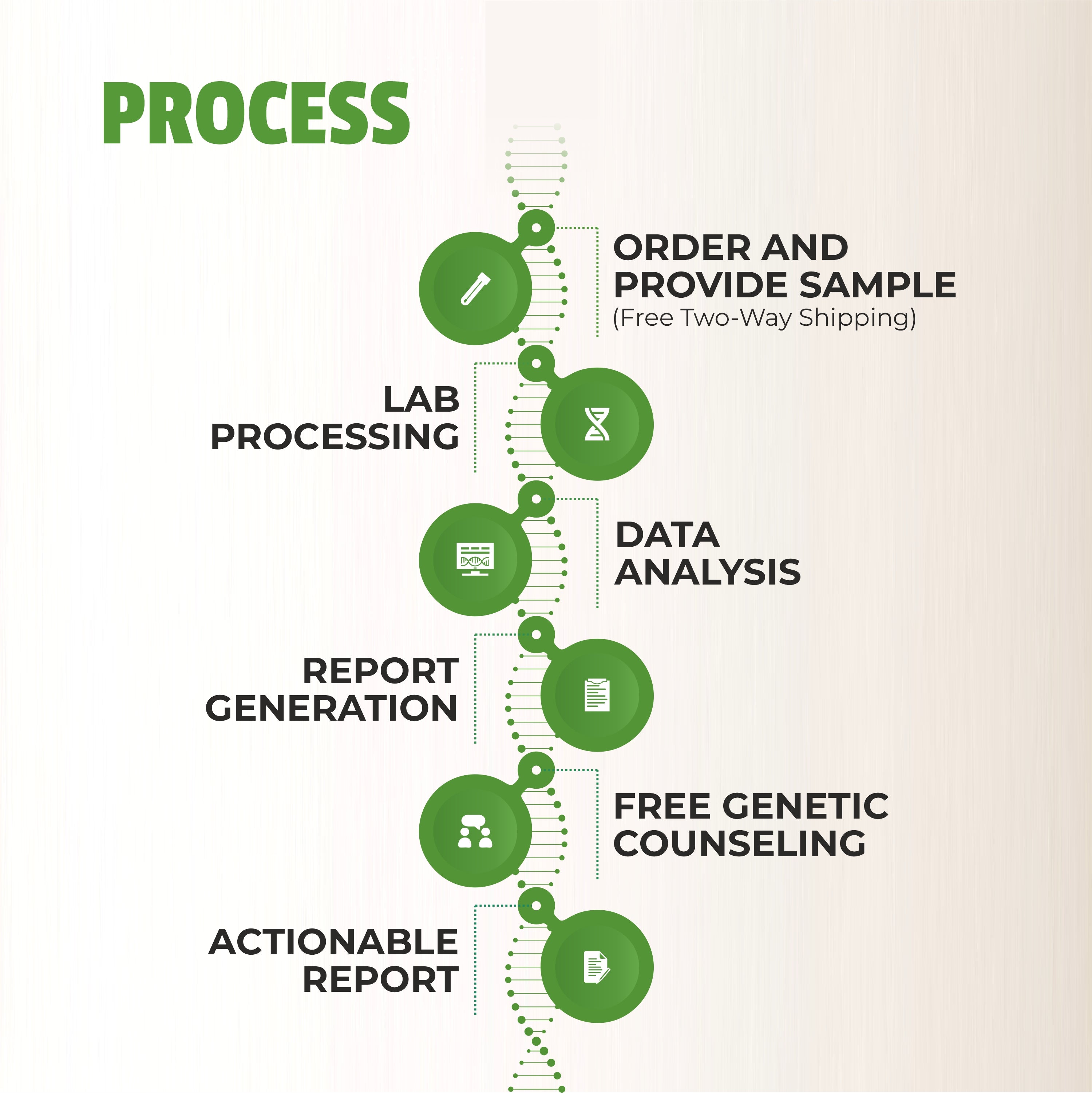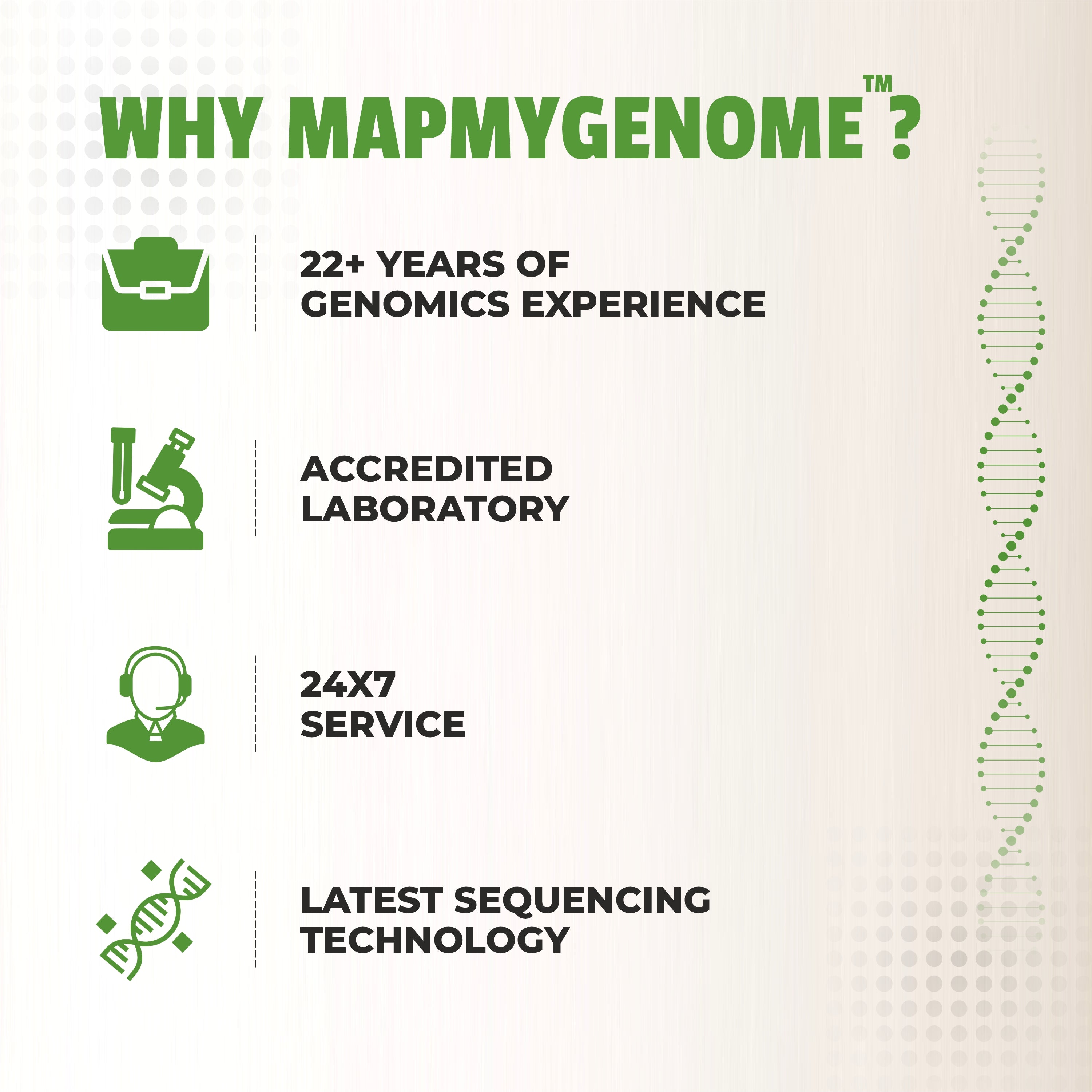Genetic testing has revolutionized healthcare, offering deep insights into a person’s DNA to identify potential health risks, hereditary conditions, and even personalized treatments. In India, the genetic testing industry has seen significant growth over the last decade, with advanced tests now available for a wide variety of conditions. From preventive health care to diagnosis and personalized treatments, genetic testing is a powerful tool for managing health more effectively.
In this blog post, we will explore the types of genetic tests available in India, their applications, and the benefits they provide. Whether you're concerned about hereditary conditions, planning a family, or want to tailor your health plan based on your unique genetic makeup, genetic testing can be a valuable resource.
What Is Genetic Testing?
Before diving into the specific types of tests, it's important to understand what genetic testing involves. Genetic testing examines a person’s DNA—the set of instructions that determine every cell’s function—to look for variations or mutations that might increase the risk of certain diseases or conditions.
Depending on the type of test, the analysis can focus on an entire genome or specific genes known to influence health conditions. Genetic testing can be performed using blood, saliva, or tissue samples and is analyzed in a laboratory.
Key Reasons for Genetic Testing
Genetic testing is often used for a variety of reasons, including:
- Predictive Testing: To assess the likelihood of developing genetic diseases before symptoms appear.
- Diagnostic Testing: To identify the genetic cause of an existing health condition.
- Carrier Testing: To determine whether a person carries a gene mutation that could be passed on to their children.
- Pharmacogenomics: To tailor treatments and medications based on individual genetic makeup.
- Prenatal Testing: To screen for genetic disorders in unborn babies.
Now, let’s dive into the various types of genetic tests available in India and their purposes.
1. Predictive Genetic Testing
Focus: Identifying the risk of developing genetic conditions in the future.
Predictive genetic testing is used to determine if a person carries specific genetic variants associated with an increased risk of developing certain diseases, such as cancer, heart disease, or neurological disorders. These tests are particularly useful for individuals with a family history of certain conditions.
Common Predictive Genetic Tests Available in India:
- BRCA 1 & BRCA 2 Testing: Identifies mutations in BRCA genes associated with a higher risk of breast and ovarian cancer.
- APOE Testing: Determines the likelihood of developing Alzheimer’s disease by looking at variations in the APOE gene.
Predictive testing empowers individuals to take preventive action, such as lifestyle changes or frequent health screenings, to minimize disease risk.
2. Carrier Screening
Focus: Determining whether a person carries a gene mutation that could be passed to their children.
Carrier screening is essential for couples planning to have children. It identifies individuals who carry a recessive gene for conditions such as cystic fibrosis, thalassemia, or sickle cell anemia. These tests are particularly helpful for couples with a family history of genetic disorders, as carriers may not display symptoms themselves but can pass the condition to their offspring if both parents carry the gene.
3. Diagnostic Genetic Testing
Focus: Diagnosing or confirming genetic conditions in symptomatic individuals.
Diagnostic genetic testing helps healthcare professionals diagnose genetic conditions in individuals who already exhibit symptoms of a particular disease. This type of testing is also crucial for confirming a suspected diagnosis based on a patient's medical history or family background.
Examples of Diagnostic Genetic Testing in India:
- Huntington's Disease Testing: Diagnoses this progressive brain disorder by detecting mutations in the HTT gene.
Diagnostic testing can lead to more accurate and personalized treatment plans for patients with genetic conditions.
4. Pharmacogenomics Testing
Focus: Personalized medicine based on genetic response to drugs.
Pharmacogenomics, also known as personalized medicine, tailors treatments based on a person’s genetic makeup. This type of testing identifies how well a patient will respond to certain medications, allowing doctors to prescribe drugs and dosages that are most effective and safe for that individual. Pharmacogenomics is particularly useful in cancer treatment, where targeted therapies can be applied.
5. Prenatal Genetic Testing
Focus: Screening for genetic abnormalities in unborn babies.
Prenatal genetic testing is designed for expectant parents who want to assess the genetic health of their unborn child. These tests can identify potential chromosomal abnormalities, such as Down syndrome, or other inherited genetic conditions. Prenatal tests are typically performed early in pregnancy and help parents make informed decisions about the health of their baby.
Types of Prenatal Genetic Tests Available in India:
- Non-Invasive Prenatal Testing (NIPT): A highly accurate test that screens for conditions like Down syndrome, Edwards syndrome, and Patau syndrome using a sample of the mother’s blood.
Prenatal testing offers peace of mind to parents and helps them prepare for the health needs of their child.
6. Newborn Screening
Focus: Early detection of genetic conditions in newborns.
Newborn screening is a critical public health service that aims to detect genetic conditions early in a baby’s life, allowing for immediate treatment and management. This testing can identify metabolic disorders, hearing loss, and other genetic conditions that may not be immediately apparent but can cause long-term health problems if untreated.
Newborn screening ensures early intervention and improved outcomes for affected children.
7. Whole Genome Sequencing (WGS)
Focus: Comprehensive analysis of a person’s entire genetic makeup.
Whole Genome Sequencing is the most comprehensive form of genetic testing, analyzing an individual’s complete DNA sequence. WGS provides insights into numerous genetic conditions, hereditary risks, and personalized health strategies. While it’s a newer and more expensive option, WGS is gaining popularity in India for its ability to provide a detailed understanding of an individual’s genetic blueprint.
Applications of WGS:
- Comprehensive Health Screening: Identifies risks for numerous diseases and conditions in one test.
- Rare Disease Diagnosis: Helps diagnose rare genetic disorders when other tests are inconclusive.
WGS is becoming a valuable tool for those seeking a holistic view of their genetic health.
Conclusion
India offers a wide variety of genetic tests that cater to different health needs, from predictive testing and prenatal screening to pharmacogenomics and whole-genome sequencing. Genetic testing can provide valuable insights into your health risks, help guide personalized treatments, and even prepare you for family planning. As these tests become more accessible, they are transforming healthcare in India, enabling individuals to take proactive control of their health.
If you are interested in understanding your genetic risks or exploring preventive healthcare options, consider consulting with a healthcare provider or genetic counselor to explore the most suitable genetic tests for you.


